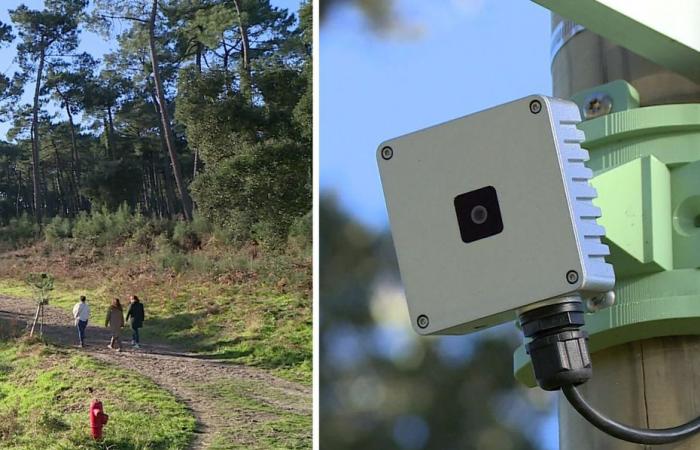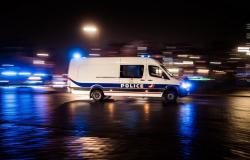Since the beginning of autumn, the Pignada forest in Anglet, in the Pyrénées-Atlantiques, has been equipped with a system to count attendance and prevent potential risks within the natural area. Devices capture images without recording them, assures the start-up in charge of the project, which is being tested for a year.
Company
From daily life to major issues, discover the subjects that make up local society, such as justice, education, health and family.
France Télévisions uses your email address to send you the “Society” newsletter. You can unsubscribe at any time via the link at the bottom of this newsletter. Our privacy policy
They have the appearance of surveillance cameras powered by photovoltaic panels, but they record nothing, according to their founders, the start-up Hupi. Since the beginning of autumn, the Pignada d'Anglet forest, in the Pyrénées-Atlantiques, has been made up of devices that operate thanks to artificial intelligence. The project was imagined in collaboration with the department and its Bivouac 64 program.
In the four corners of this forest, this system counts the use of this natural space. “Artificial intelligence (IA) allows you to take images, and detects in real time what a person or dog is, being able to characterize these images”presents Vincent Moreno, co-founder of Hupi.
Even though he knows that AI can sometimes be “a bad word that we use almost everywhere”he wants to be reassuring about its use in this project. “It doesn't record anything, it doesn't film people. It just takes images and detects in real time”he promises.
The objective of this deployment is to prevent possible dangers, in particular the outbreak of fire. Four and a half years ago, an arson attack ravaged the Pignada forest, destroying 80 hectares of vegetation. The central part only reopened to walkers a year later.
It is to prevent this type of incident that this system is put in place. “Artificial intelligence is used for its ability to extract clues that may present a risk“, continues Romain Roquefère, another co-founder of Hupi.
The work of these computers goes even further. “They don't just measure. It is an operational system, which then sends information, alerts, notifications, even recommendations“, he explains. “For example, if they detect a potential risk, this must lead to concrete action by an agent on the ground.“
The Bivouac 64 program finances this project, which is led by the start-up Hupi.
•
© Julie Dubois / FTV
The program, Bivouac 64, is a mission carried out by the departmental tourism agency of the department. It allows start-ups to experiment with solutions or technologies serving tourism businesses.
“L’iThe challenge is to be able to investigate a new field of security in busy, sensitive natural areas. Here, we experiment, quantify and qualify flow of passages“, says Christophe Voisin, engineering development director at the departmental tourism agency. This can, for example, allow “to identify inappropriate behavior”according to him, as in 2020 during the arson.
The experiment is expected to last one year. Depending on the conclusions of the stakeholders, this system could be extended, or even reproducible in other sensitive natural areas.
(With Lisa Berges)






